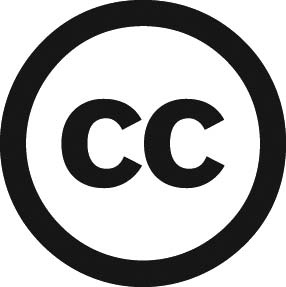
by Ana Soares
It’s tough to be an artist in the era of copyright, so knowing that organizations like Creative Commons are out there, looking out for your right to be creative, can be at least reassuring.
Whether you’re an independent or mainstream filmmaker, a musician or a scientist, a writer or an ayahuasca appreciator – copyright laws concern you. If your job or hobby involves being creative and producing something unique out of whatever influences you, you’ve most likely had to stop to think and worry about whether you’ve been infringing the law of whatever country you’re working in.
That’s where Creative Commons comes in. Created in 2001 by Lawrence Lessig, the non-profit organization’s mission is to “increase sharing and improve collaboration” amongst people who simply want to create, free(er) of legislative limitations. Their argument, which to me sounds more than reasonable, is that the era of being a mere consumer is over. In the 21st century, most of the time we act as the subjects of media rather than subjects to media. As an artist, or at the very least as a person interested in art (enough to be reading this article), I’m guessing you identify yourself much better with the latter than the former category.
RiP! A Remix Manifesto investigates the issue mainly in the United States. Very cleverly structured, the documentary tells the story of the development of copyright and “intellectual property” laws, all within the context of America. The director, Brett Gaylor, uses Brazil as the counter-example: a country that refuses to conform to the U.S.’s over-controlling patent policies (which, I must note, did a bit of good to my Brazilian ego). I won’t tell you much more about it, other than 1) you must watch it and 2) the film is available for all to view on Vimeo and other wesbites, and its producers encourage us all to contribute by editing and remixing it according to wish. There’s no final cut – to each its own.
If you, like me, Brett Gaylor and Lawrence Lessig, feel that it is wrong to criminalize someone for creating art in the 21st century, and believe that in order for culture to evolve “the control of the past must be limited”, then RiP! A Remix Manifesto and Creative Commons were made for you. They’re great places to start thinking critically about where your influence comes from, and about how where they can lead you (and your work) is very much dependent upon your government’s and favorite artists’ good will.
For more information, visit:
creativecommons.org/
www.opensourcecinema.org/
vimeo.com/8040182
Creative Commons, le Robin des bois du 21ème siècle
Que vous soyez réalisateur indépendant ou mainstream, musicien ou scientifique, écrivain ou amateur de l’ayahuasca, vous êtes tous concernés par les droits d’auteur. Si dans le cadre de votre métier ou de vos loisirs vous êtes amenés à créer à partir de diverses sources d’inspiration, vous avez sûrement dû vous demander si vous n’étiez pas en infraction dans le pays où vous travaillez.
C’est là que Creative Commons entre en scène. Créée en 2001 par Lawrence Lessig, cette organisation à but non-lucratif vise à « favoriser le partage et améliorer la collaboration » entre les personnes qui veulent tout simplement créer, sans trop de contraintes légales. Leur argument, plus que raisonnable à mes yeux, consiste à avancer que l’ère des simples consommateurs est révolue. Au 21ème siècle, on se comporte généralement comme des acteurs des médias plutôt que des sujets passifs des médias. En tant qu’artiste, ou du moins en tant que personne qui s’intéresse à l’art (assez pour lire cet article), j’imagine que vous vous identifiez plus facilement à la première catégorie qu’à la seconde.
RiP! A Remix Manifesto étudie la question en se concentrant sur les États-Unis. Ce documentaire très bien construit raconte le développement du copyright et des lois de la propriété intellectuelle en Amérique. Le metteur en scène, Brett Gaylor, évoque comme contre-exemple le Brésil, pays qui refuse de se plier aux mesures de contrôle excessif de la propriété intellectuelle (ce qui a d’ailleurs fait du bien à mon égo brésilien). Je ne vous en dirai pas plus sur ce documentaire si ce n’est que 1) Il FAUT le voir et 2) il est disponible sur Vimeo et d’autres sites internet, et ses producteurs nous encouragent à y contribuer en le modifiant et en le remixant à notre guise. Pas de final-cut, chacun choisit le sien.
Si comme moi, Brett Gaylor et Lawrence Lessig, vous trouvez injuste qu’au 21ème siècle certains artistes soient considérés comme des criminels, et si vous croyez que le progrès de la culture exige que « le contrôle du passésoit limité », alors vous vous reconnaîtrez dans RiP! A Remix Manifesto. Ce sont de parfait points de départs pour une réflexion critique sur l’origine de l’inspiration, et le rôle de la bonne volonté de l’État et de votre artiste préféré dans le résultat de votre création.
Pour plus d’informations, rendez-vous sur les sites suivants :
creativecommons.org/
www.opensourcecinema.org/
vimeo.com/8040182

